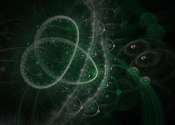Thought experiments and conservation laws: Reevaluating quantum conservation principles
Conservation laws are central to our understanding of the universe, and now scientists have expanded our understanding of these laws in quantum mechanics.

Conservation laws are central to our understanding of the universe, and now scientists have expanded our understanding of these laws in quantum mechanics.

In a recent publication in EPJ Quantum Technology, Le Bin Ho from Tohoku University's Frontier Institute for Interdisciplinary Sciences has developed a technique called time-dependent stochastic parameter shift in the realm ...
Quantum Physics
Oct 11, 2023
0
58

Some of our most important everyday items, such as computers, medical equipment, stereos, generators, and more, work because of magnets. We know what happens when computers become more powerful, but what might be possible ...
Condensed Matter
Jul 26, 2023
0
67

Quantum computers, machines that perform computations exploiting quantum mechanical phenomena, could eventually outperform classical computers on some tasks, by utilizing quantum mechanical resources such as state superpositions ...

When we listen to our favorite song, what sounds like a continuous wave of music is actually transmitted as tiny packets of quantum particles called phonons.
General Physics
Jun 8, 2023
0
2314

New experiments using one-dimensional gases of ultra-cold atoms reveal a universality in how quantum systems composed of many particles change over time following a large influx of energy that throws the system out of equilibrium. ...
Quantum Physics
May 17, 2023
0
286

Imagine using your cellphone to control the activity of your own cells to treat injuries and disease. It sounds like something from the imagination of an overly optimistic science fiction writer. But this may one day be a ...
Quantum Physics
May 16, 2023
0
223

The 2022 Nobel Prize in Physics was awarded to Alain Aspect, John Clauser, and Anton Zeilinger for their works on "quantum nonlocality" in quantum mechanics. Quantum nonlocality is a phenomenon where connected particles can ...
Quantum Physics
Apr 19, 2023
0
218

Tunneling reactions in chemistry are difficult to predict. The quantum mechanically exact description of chemical reactions with more than three particles is difficult, with more than four particles it is almost impossible. ...
Quantum Physics
Mar 1, 2023
0
256

Will an electron escaping a molecule through a quantum tunnel behave differently depending on the left- or right-handedness of the molecule?
Optics & Photonics
Dec 23, 2022
0
477